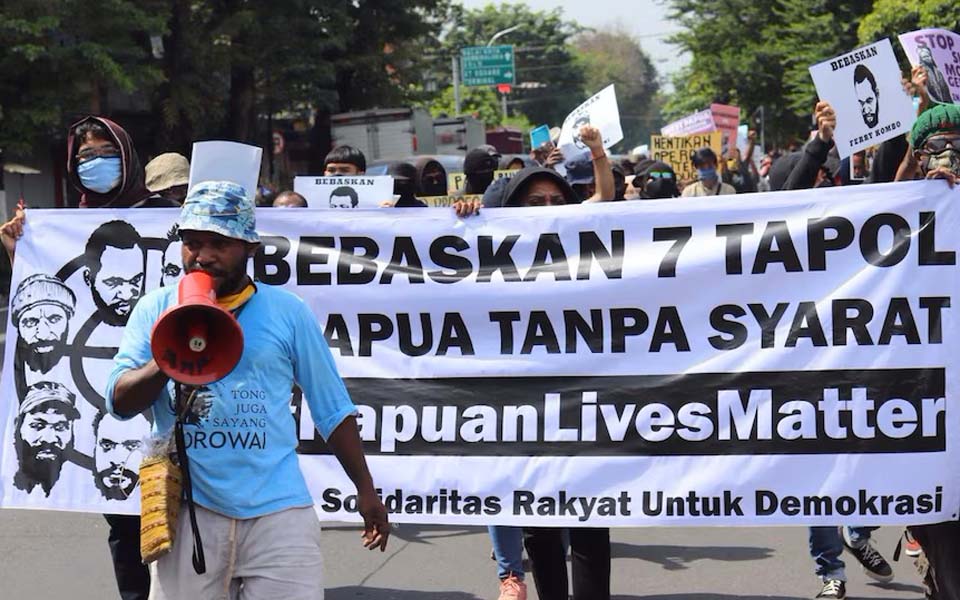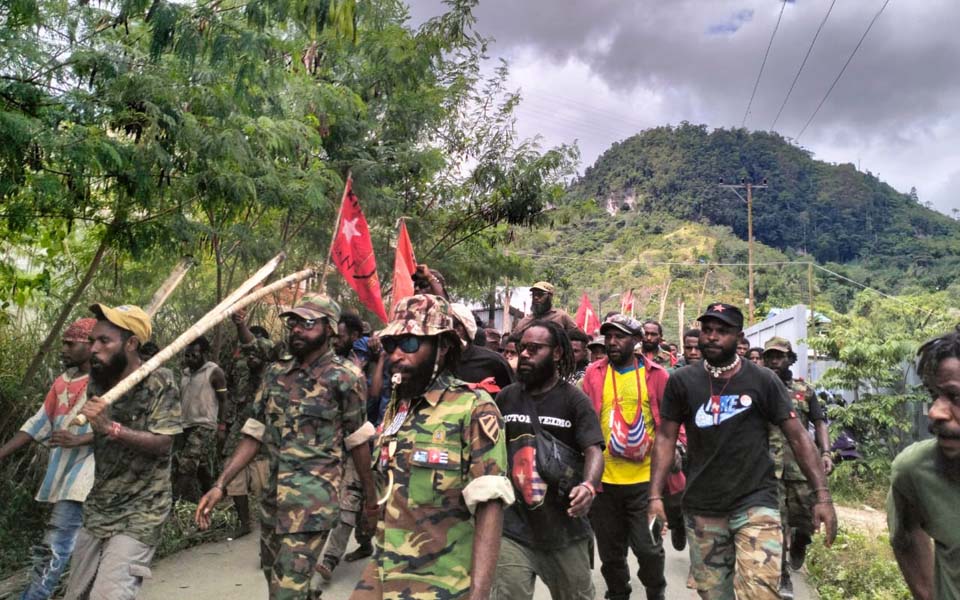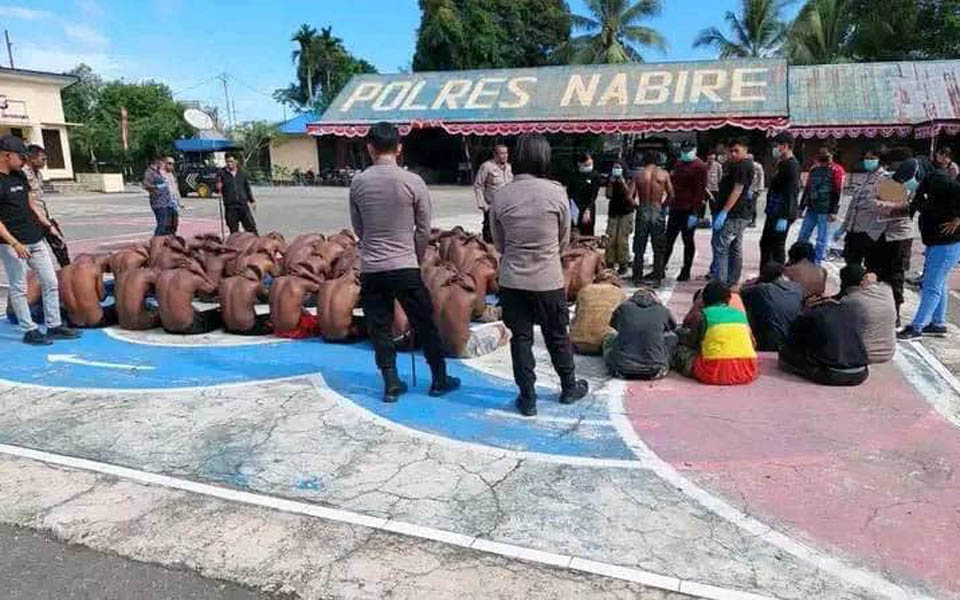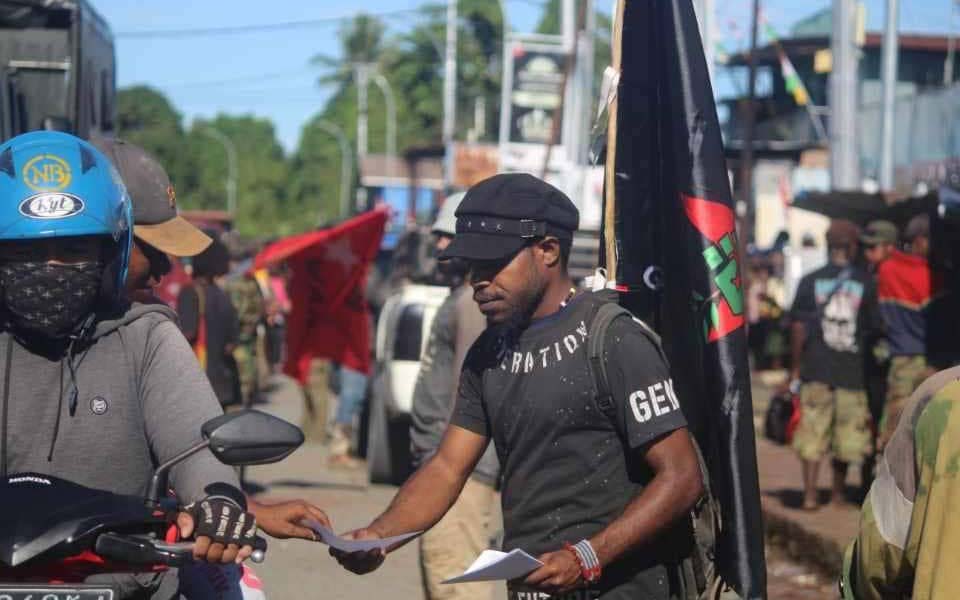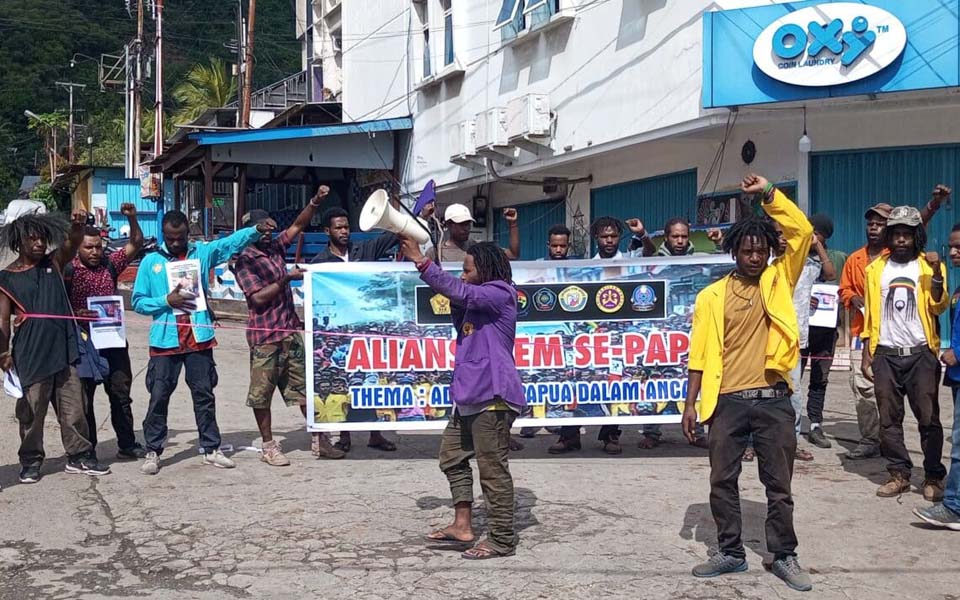Jakarta – The Papuan Coalition for Upholding the Law and Human Rights is urging the police to stop criminalising the Papuan people through the makar (treason, subversion, rebellion) articles if they do not want the term political prisoner (tapol) to be used anymore in Indonesia.
Coalition litigation coordinator Emanuel Gobay says that basically, the term makar is unclear so it is often used to criminalise people.
Gobay also quoted from an Institute for Criminal Justice Reform (ICJR) report which was submitted as part of a judicial review of the makar articles with the Constitutional Court in 2017. In the judicial review the ICJR said that the government itself is confused about the meaning of the term makar.
“The government’s arguments are also confusing in understanding and finding a definition for ‘makar’”, said Gobay in a press release received by CNN Indonesia on Thursday June 18.
In the release, the lawyer who represented seven Papuans who were recently sentenced on charges of makar by a court in Balikpapan, East Kalimantan, also touched on a statement by National Police spokesperson Inspector General Argo Yuwono who stated that the seven were not political prisoners but ordinary criminals.
According to Gobay – again quoting from the ICJR report submitted in the judicial appeal – makar must be defined as a legal norm which has a clear definition. Basically in the Dutch version of the Criminal Code (KUHP) which was adopted and is still used in Indonesia, makar is defined as an attack.
This he said is different from what has frequently been meant by makar, that is intent. This definition is what in fact is often used to indict defendants and court verdicts in trials.
Gobay also quoted the definition of makar from at least three books in the KUHP. In the details specified, he said, the three books regulate or define makar differently.
“The first book is on general regulations, the second book is on crimes and the third book is on violations”, explained Gobay.
In the first book for example, Gobay found 21 chapters which specifically related to the makar articles which is regulated under Chapter I on Crimes against the State and the articles on theft which are regulated under Chapter XXII on Theft.
Referring to these two classifications, Gobay said that the definition of makar must be seen in terms of different patterns of theory and practice, and cannot be equated with each other.
Meanwhile in relation to Yuwono’s statement, according to Gobay, the fact is that the seven Papuan political prisoners who were found guilty by the Balikpapan court did not commit a crime of makar.
Because of this and based on the facts, all of the explanations by Yuwono should be set aside because his statements are not based on the facts on the ground.
Furthermore, explained Gobay, the makar articles are also regulated under Book II on Crimes. Yet the formulation of the chapter is regulated separately under Chapter I on Crimes against State Security.
Because of this, according to Gobay, the makar articles cannot be used to draw the conclusion that the seven are “criminals, not political prisoners” as cited by Yuwono.
Aside from this, in principle, said Gobay, the makar articles are included under the category of crimes against state security as contained in the KUHP’s Book II on Crimes.
He also quoted from the definition of makar according to A.B. Loebis. He explained that according to Loebis there are at least nine definitions of makar, three of which are crimes against the state or state security, crimes against the political system, and crimes related to seizing, defending or overthrowing the authorities.
With these theoretical definitions, Gobay believes that Yuwono’s statement is wrong in referring to the seven Papuan political prisoners as criminals.
Because of this, the Papua Human Rights Coalition is calling on the police to cooperate with the ICJR to submit a judicial review on the makar articles with the Constitutional Court with the aim being to remove the makar articles from the KUHP so that the term “tapol” no longer exists in Indonesia. (thr/pmg)
[Translated by James Balowski. The original title of the article was “Koalisi HAM Papua Desak Polisi Tak Lagi Gunakan Pasal Makar”.]






